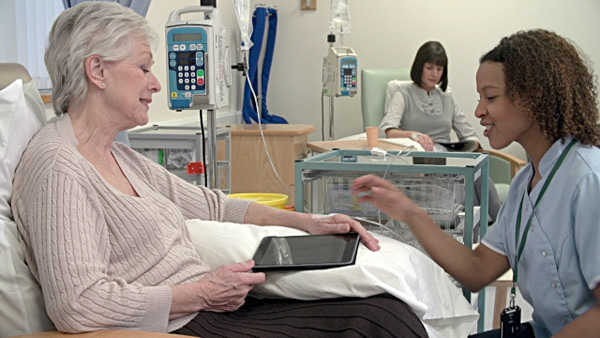 Patients that received chemotherapy after bladder cancer surgery demonstrated an approximately 30% lower risk of death than those that underwent surgery alone, according to an analysis to be presented by researchers at the Icahn School of Medicine at Mount Sinai at the 2015 Genitourinary Cancers Symposium.
Patients that received chemotherapy after bladder cancer surgery demonstrated an approximately 30% lower risk of death than those that underwent surgery alone, according to an analysis to be presented by researchers at the Icahn School of Medicine at Mount Sinai at the 2015 Genitourinary Cancers Symposium.
Clinical trials have established the benefit of giving chemotherapy prior to surgery (neoadjuvant chemotherapy) for patients with bladder cancer. However, clinical trials exploring giving chemotherapy after surgery (adjuvant chemotherapy) have been difficult to interpret and many of the trials closed early due to poor accrual without providing an answer.
Lead researcher Matthew Galsky, MD and colleagues used a large database of patients diagnosed with cancer in the United States. Specifically, the study found that patients receiving adjuvant chemotherapy after surgical treatment had improved overall survival when compared to patients that received surgical treatment alone with only post-surgical observation.
“Until now, data supporting adjuvant chemotherapy has been mixed,” said lead Dr. Galsky, Associate Professor of Medicine, Hematology and Medical Oncology, and Assistant Professor, Urology at the Icahn School of Medicine at Mount Sinai. “Our analysis of actual cases supports the use of chemotherapy after surgery for patients with locally advanced bladder cancer.”
Of the 5,653 patients analyzed, 1,293 patients received adjuvant chemotherapy versus 4,360 patients who received surgery alone.
“Chemotherapy prior to surgery remains the optimal approach for patients with bladder cancer based on the available evidence. However, population-based observational studies may be used to help fill the knowledge void in situations where clinical trials have not yielded definitive evidence. This comparative effectiveness analysis may help inform the care of patients with bladder cancer who have not received chemotherapy prior to surgery,” Dr. Galsky said.
This study was a collaborative effort by researchers at the Tisch Cancer Institute at Mount Sinai; Departments of Preventative Medicine and Urology at the Icahn School of Medicine at Mount Sinai; and the Lahey Clinic in Burlington, MA.
The findings are included in an abstract featured at the 2015 Genitourinary Cancers Symposium, which is co-sponsored by the American Society of Clinical Oncology, the American Society for Radiation Oncology, and the Society of Urologic Oncology. The Symposium will take place February 26-28 in Orlando. The study done by Mount Sinai Medical Center.